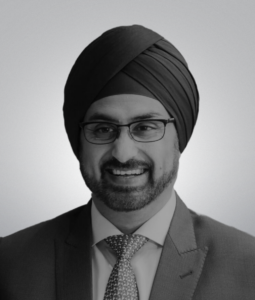
Owner Development
Develop yourself, your organization, and your family
The Challenge
Engaged ownership and effective leadership rarely exist in a vacuum — they require a lifetime of learning and development. Not only do young owners need to build a general awareness of their family enterprise and the challenges of continuity, but leaders of all ages need to invest in expanding their knowledge base to keep pace with a rapidly changing environment. When families get this right, their owners and leaders can create significant long-term value for all of their stakeholders.
Our Solution
Wherever you are in your learning journey, LGA offers a range of workshops, seminars, and experiential opportunities — from one-off sessions to comprehensive multi-year owner development programs. Each offering is tailored to the unique developmental needs of the family, its owners, and its leadership teams.
Our focus is on building the key competencies necessary to sustain the success of your family enterprise across generations, with unique programming for each of the four types of owners:
Engaged Owners – Stewarding the Family Enterprise:
Owners who are neither in governance or management roles but care about the family business (e.g., participate, prepare, stay informed)
Governing Owners – Representing the Owners:
Owners who serve exclusively in governance roles (e.g., boards, councils, committees above CEO or in family governance)
Leading Owners – Leading the Enterprise:
Leaders of the governance structures (boards, councils, committees, etc.) ensuring they function properly
Operating Owners – Running the Business:
Owners who serve in management roles and are deeply connected to the enterprise (e.g. including CEO or below)
How does it work?
Within each of these ownership groups, your LGA advisor can help you design a strategic curriculum to develop five core competencies:
- Contextual Intelligence: Knowing and understanding the past, present, and future plans for the family and the business
- Business Acumen: Ability to understand and interact with business data and situations effectively
- Practicing Governance: Understanding and navigating the roles, processes, and rules for decision-making throughout the enterprise
- Interpersonal Skills: Communicating, collaborating, and managing conflict effectively
- Values & Ethics: Aligning personal actions with shared norms of appropriate behavior
How does your family benefit?
Our experience as educators has taught us that family members each have unique learning profiles and preferences. Consequently, our owner development programs draw on a variety of conventional and experiential formats, including keynote presentations, curated site visits, fireside chats with enterprise leaders, peer sessions with other leading families, and hands-on simulations and exercises facilitated by LGA advisors.
We work with family leaders to assess your family’s readiness for educational programming, key topics of interest, preferred formats of learning, and the ideal frequency and location of these activities. This data will help us ensure the greatest participation and impact of these investments in your family’s human capital. Once built, these programs are often institutionalized in the form of a Family Academy, which is available on an ongoing basis and serves as the first point of exposure for young family members to the family enterprise.
For those families who aren’t yet ready to build and deploy a multi-year program, we also offer a variety of stand-alone programs.
Leveraging decades of experience both on-campus and working closely with families like yours, LGA can help you build your own development program that will lay the foundations for sustaining success across generations.
Case Study
Case Study: Sustaining Engagement in a Cousins Consortium
Three third-generation Family Directors of a large enterprising family were attending a global conference focused on innovation and growth. Their 90-year old family had deep pride and gratitude for the success and leadership of previous generations. However, there were no family members currently working actively in the business, and the family’s only connection to their vast operations — which spanned eight industries and three continents — was limited to these three members of the Board.
Related Insights

How can Families Build Lasting Wealth Beyond the Balance Sheet?
In this episode of the LGA Lighthouse podcast, host Listen to this episode of LGA Lighthouse on your preferred podcast platform. Consider subscribing to receive

Family Governance: Can AI Become Your Trusted Advisor?
The rise of Artificial Intelligence (AI) is not merely a technological shift; it represents a fundamental transformation reshaping every industry across the world. While the precise nature of its impact on the highly nuanced field of family enterprise consulting remains uncertain, change is upon us.

Why It Took Me Three Years to Finish HBO’s Succession and What It Teaches Us About How Not to Run a Family Enterprise
I tried to watch the award-winning HBO series on numerous occasions, stopping repeatedly, not because it wasn’t brilliant, but because it was brutal. The cynicism, humiliation, and constant power games felt too extreme. For anyone working closely with multi-generational family enterprises, this world of perpetual chaos and zero-sum power felt not only far removed from our reality, but was also a painful mirror reflecting everything that causes a family enterprise to fail.

Can Families Find Purpose by Giving Together?
In this episode of the LGA Lighthouse podcast, host Tim Yeung interviews Ashley Blanchard, a Partner at LGA and an expert in family philanthropy. Drawing on her co-authored study with Wendy Ulaszek for the National Center for Family Philanthropy, Ashley shares insights on how families can successfully engage the next generation, balance individual interests with collective purpose, and navigate the journey of professionalizing their philanthropic efforts.

Can Worry Actually Work for You to Parent with Purpose?
In this episode of the LGA Lighthouse Podcast, host Tim Yeung speaks with psychotherapist and author Dr. Dana Dorfman about her book, When Worry Works: How to Harness Your Parenting Stress and Guide Your Teen to Success. They discuss how parents, especially those in successful family enterprises, can transform their achievement-driven anxiety into intentional, values-based parenting.

Is It Time to Rethink How Boards Make Decisions with Ground-Up Governance?
In this episode of the LGA Lighthouse Podcast, host Tim Yeung chats with Matt Fullbrook, a corporate governance advisor and creator of Ground-up Governance. Matt challenges traditional thinking on governance, offering a fresh perspective on how organizations, especially family enterprises, can make better, more intentional decisions.
Featured advisors

Bob Kohli
Bob has decades of experience as a global advisor, predominantly in the Middle East and South Asia, with a focus on strategic planning and governance.

Bobby Ning
With 25 years of experience, Bobby empowers wealth inheritors within enterprising families, equipping them with the essential mindset, practical tools, and crucial communication skills to become responsible owners and stewards of their wealth. He specializes in owner education development and financial literacy, delivering comprehensive wealth, tax, and estate management education tailored specifically for family enterprise and business leaders.

Alphil Guilaran
With 25 years of experience, Alphil empowers wealth inheritors to become responsible owners and stewards of their family’s legacy. He’s passionate about fostering financially literate generations, helping families bridge communication gaps to preserve their values and vision.

Ernie Patterson
Ernie is focused on designing, implementing, and supporting governance systems and educational programs within complex multi-generational family enterprises.

Thomas Ang
Thomas is a Partner with LGA, where he leads the firm’s Global Practice for Family Offices and is the lead advisor for Asia.

Helena Schmidt
Helena specializes in leadership development, executive and team coaching, and organizational learning.
